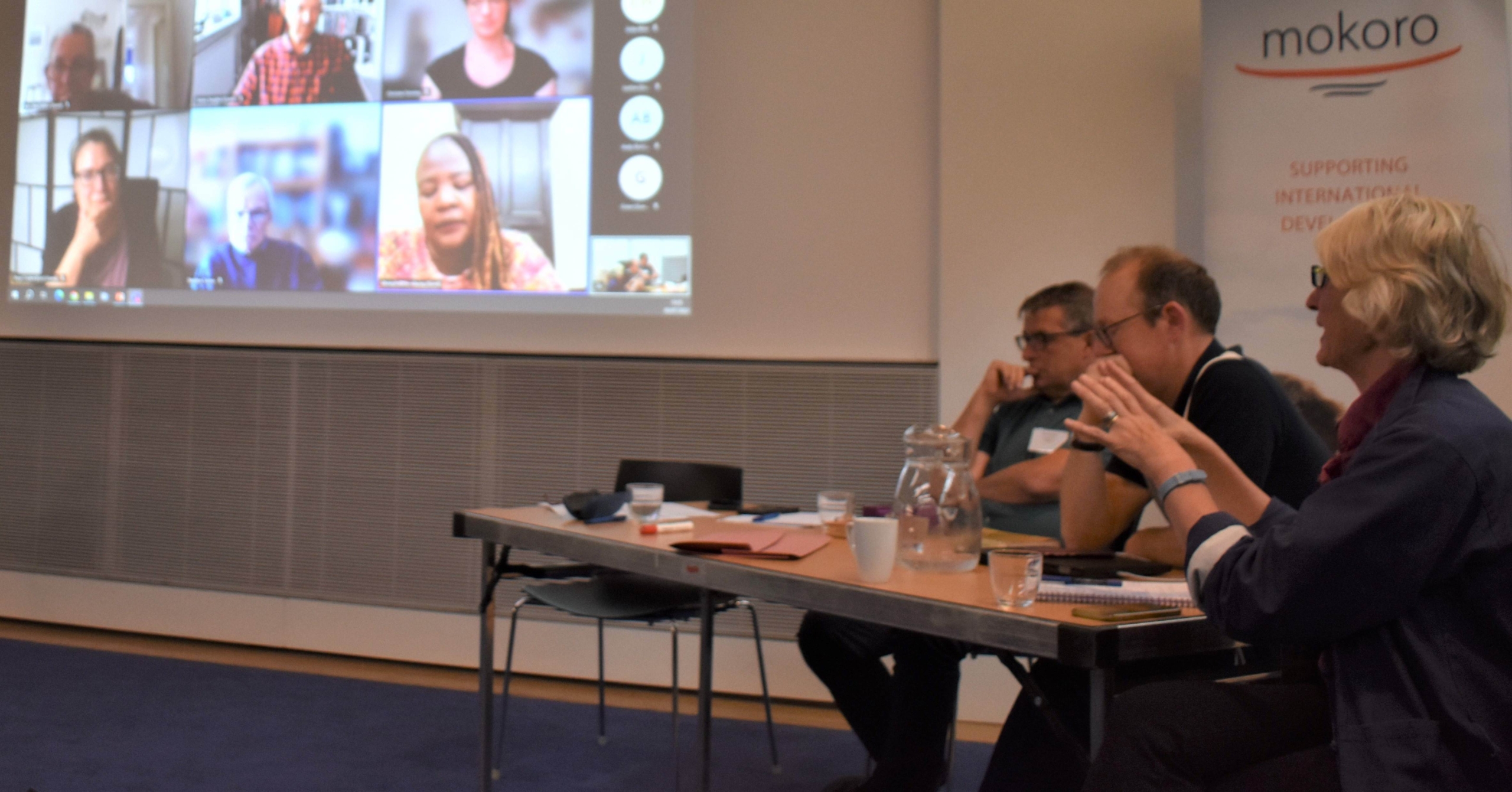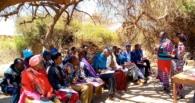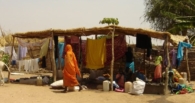Protesting herders to get government support to stop harmful mining operations
B. Munkhtuvshin
11 October 2022
/
- 0 Comments
Like many countries, Mongolia has been hit hard by the Covid-19 pandemic and its government has been accelerating investments in the mining sector to help the economy. However, this has led to protests by local communities concerned about their land rights, and about their health. Among them is the community of Dalanjargalan, where the WOLTS project has been working with local champions who have been trained in land law, gender issues and participatory decision-making.
Dalanjargalan soum (or district) is located in the Gobi Desert of Mongolia. About 80% of the soum’s territory is under mining licences, both for exploration and production. In June 2022, more than 100 local representatives brought their peaceful but colourful protest to the capital city, Ulaanbaatar, under the slogan: “We will not sell our land”. They brought with them a petition signed by more than 1,500 people, and said they were excluded from decisions on land leases for mining. More than 100 people, organised into groups of 10 and supported by friends and relatives in the capital, demonstrated for a total of three weeks in front of the main government building in Sukhbaatar Square.
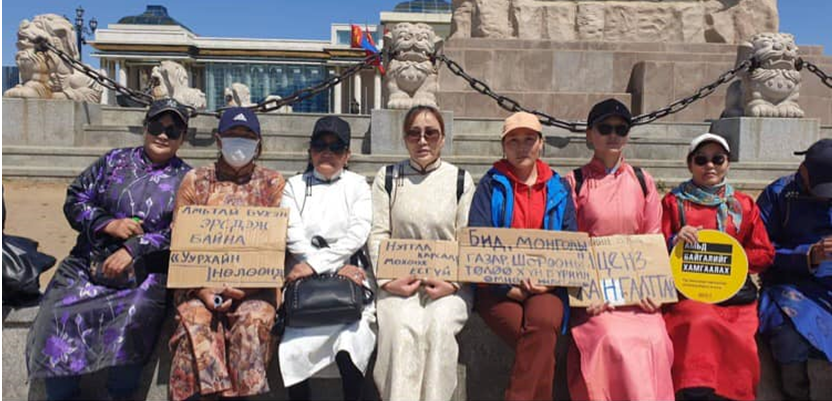
Source: WOLTS Champions
Protestors from Dalanjargalan with banners reading: “Government policy threatens nomad culture and heritage” and “Government encourages land grabbing and violates the rights of nomads”.
Dalanjargalan and the wider Gobi area is already experiencing increasing pastureland degradation and rainfall variability due to mining and climate change and the situation is getting worse each year. According to the herders leading the protests, excessive underground water is being used by mining operations without government monitoring, causing drought, while heavy trucks are causing serious soil erosion.
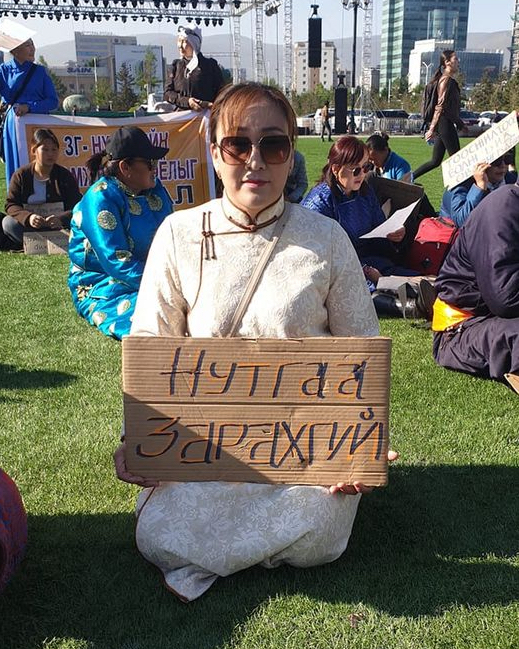
Source: WOLTS Champions
They say more than 20-40 new roads have been created within a 270-470 km radius. These trends have been present for some years now, including health effects, but seem to be getting worse for local people who now have knowledge and confidence to defend their community’s land.
Over time, herders from other parts of the country joined the demonstration started by the champions of Dalanjargalan. The herders submitted a joint letter to the National Security Committee asking the government to immediately call a meeting to take action about their concerns. As a result, Mongolia’s President, Mr. Ukhnaagiin Khürelsükh, the Speaker of Parliament, Mr. Zandanchatar, and Prime Minister, Mr Luvsannamsrain Oyun-Erdene, asked the National Security Committee to meet immediately and make a clear decision to minimize the risks from mining and not to repeat them.
After 21 days of demonstrations, the Mongolian Government replied to the local communities including the herders from Dalanjargalan. As a result:
- 10 new mining companies in Dalanjargalan have stopped their operations
- 30 mining companies in the area are being monitored by the government
- The government, through its relevant agencies, has promised to address the communities’ concerns
I was so proud to see the Dalanjargalan gender and land champions lead these national demonstrations. They were well informed and well organized. They raised their concerns together, made their requests crystal clear, and remained as calm as the wide landscape that they come from. I never saw any anger or frustration, just persistence and knowledge that they had the right to protect their land, and they succeeded.
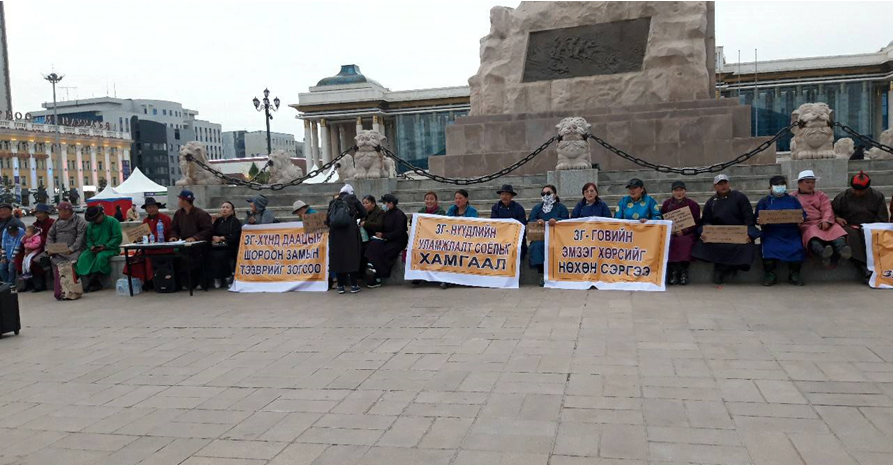
Source: WOLTS Champions
B. Munkhtuvshin works with the Mongolian NGO, People Centered Conservation (PCC). She is a key field team member for the global WOLTS project, which is carried out in Mongolia by PCC with Mokoro.

